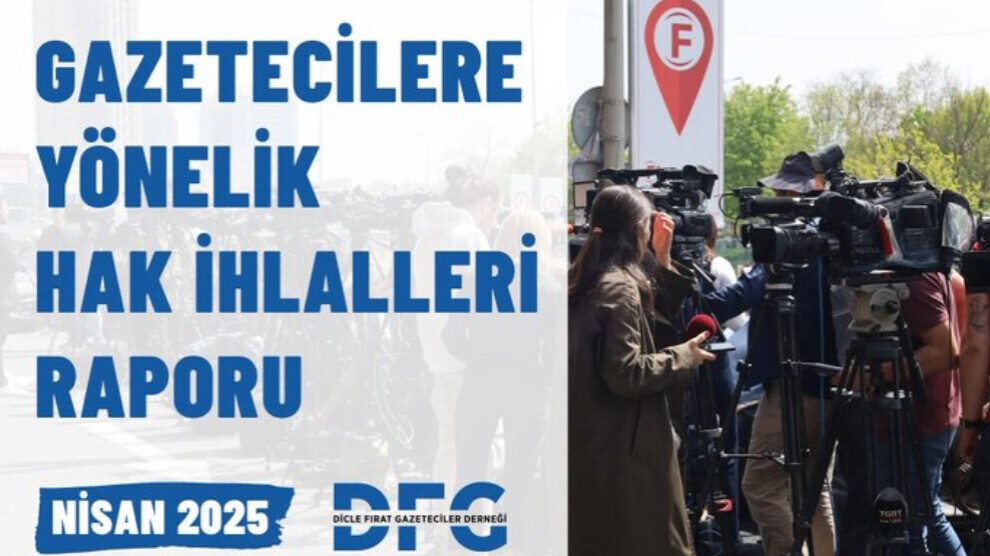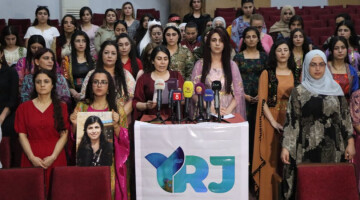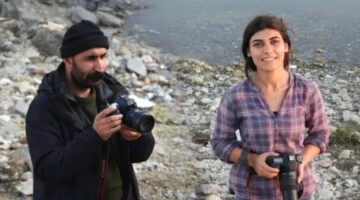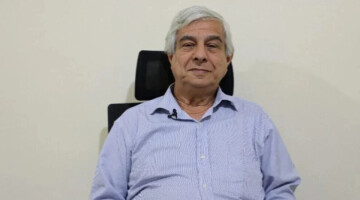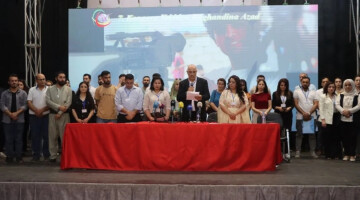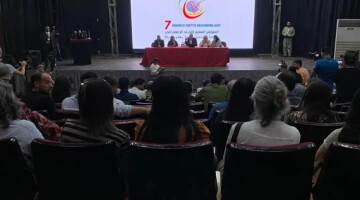On World Press Freedom Day on May 3, the Dicle-Fırat Journalists’ Association (DFG) based in Amed (tr. Diyarbakır) presented its monthly report on violations of press freedom in April. The findings show that media workers in Turkey continue to face imprisonment, censorship, and criminal prosecution.
“Without a free press, there can be no free and democratic society,” said the DFG report, which outlines how pressure on media professionals has continued to increase dramatically, from house searches and charges to new arrests.
36 journalists still in prison
According to the DFG, eight journalists were jailed in April alone, bringing the total number of media workers currently imprisoned in Turkish prisons to 36. In addition, there have been threats, attacks, and restrictions on journalistic work on the ground: one journalist was attacked and another was threatened by the police. One journalist was deliberately prevented from reporting, and a detained journalist reported violations of her rights.
Criminal prosecution also remains a key tool of intimidation. In April, 47 journalists faced proceedings in 28 different cases. Six of them were sentenced to a total of nine and a half years in prison. New investigations were launched against five media professionals and charges were brought against 13 others.
International criticism grows – but repression continues
In the latest Reporters Without Borders (RSF) ranking of press freedom worldwide, Turkey ranks 159th out of 180 countries – in the “very serious” category. Developments in 2025 confirm this assessment. According to the DFG, a total of 65 journalists have been detained since the beginning of the year, 25 of whom remain in custody.
A particularly controversial ruling was handed down in April against Swedish journalist Joakim Medin, who was given an 11-month suspended prison sentence for insulting the president. The DFG considers the ruling a targeted attack on foreign correspondents and an expression of a repressive judicial strategy: “Criminalizing journalism is itself a crime.” Medin is also facing a second trial, in which he is accused of membership in a terrorist organization.
Censorship on social media and online
Parallel to repression on the streets and in courtrooms, digital censorship is also continuing to spread. According to the DFG, 171 social media accounts were blocked and six pieces of journalistic content were banned in April. The association is particularly critical of the growing role of international platforms such as X (formerly Twitter) and, more recently, Bluesky, which are increasingly cooperating with Turkish authorities.
In addition, seven websites were blocked last month—another attack on digital freedom of expression.
Demand for May 3: Freedom of the press is a fundamental prerequisite for democracy
On World Press Freedom Day, the DFG called on the Turkish authorities to immediately release all imprisoned journalists. “Journalism is not a crime, persecuting it is. A democratic society without free media is inconceivable – and Turkey is increasingly moving in the opposite direction,” the DFG statement concluded.

